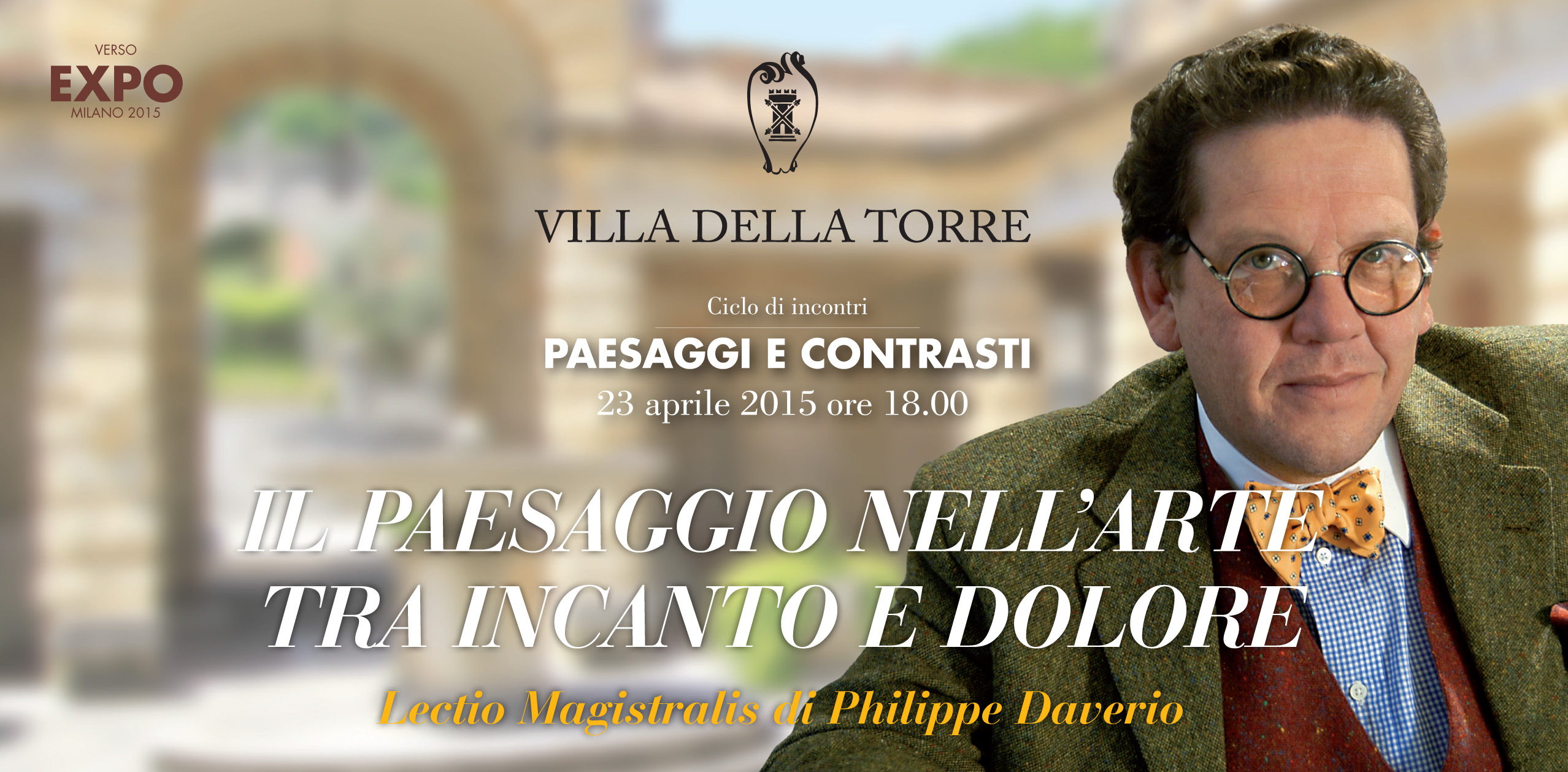Landscapes and contrasts
Preserving the Landscape beyond artistic values
The now concluded cycle of seminars “Landscapes and Contrasts”, dedicated to the beauties of our country, to a landscape to protect and defend, to an intrinsic quality of products that the whole world envies us, gave the opportunity to reflect on the socio-economic role of the farmer during the centuries and on parallels and differences of various cultures and religions at time of feasting.
The Lectio Magistralis by Philippe Daverio, one of the best-known italian and international art critics, entitled “Landscape in Art between enchantment and sorrow,” concluded the series of meetings organized by Abbas in the prestigious Villa Della Torre in Fumane of Valpolicella. Prof. Cesare Feiffer, director of our recuperoeconservazione magazine, opened the works by focusing on the different meanings of a unique concept: the landscape, as a separate item from its preservation. “For a long time the landscape was conceived in a limited way, giving it the role of mere frame of monuments, villas or artistic elements in general, characterized by a clear value; Similarly to archaeology that neglects the importance of soil settlement at the expense of the found object of recognized importance. Even today, in universities, professors teach new landscapes and not their preservation while the landscape in its truest sense must be recognized as a container of signs, an open book of unartistic values in which street, agriculture, marogne must be watched by sensitive eyes and able to decipher the value. ”
Philippe Daverio’s intervention started emphasizing the Italian territory in its multiplicity. “The landscape doesn’t cover only agricultural components, but consists of a mixture of practices, complexities, human sweat and biodiversity. The Italian one is an example of a totally man-made landscape, where it is the work of man that made formidable and valuable the territory, that still goes back to man as a key element through which building the identity of people. France, as switched to constitutional monarchy called it heritage, with a slight difference from the British concept linked to an idea of heritage that unless not transmitted would constitute an anthropological irresponsibility, confirmed by the fact that the past has a sense if it serves to build the future. Demonstrating respect for the past, we have so the full right and duty to intervene safely on our landscape in order to make it live and relive, we must have the courage to draw it again, following the variable character of the nature itself, which physiologically changes. The way is the one of destructions and great reconstructions. It also contains a communicative value of great sensitivity that allows us to enhance the landscape as an identification tool of competitive advantage to promote, a mental path by which people acquire their own history. The knowledge of this heritage makes us examine not the individual place, not the individual building but the right integration between building and location. We have therefore to take a path that leads us to consciousness of a progression where the product of the land, the work, the heritages of practices and knowledge, the wine, can be understood as a cohesive and union element.”
Fumane (VR), April 23rd, 2015

